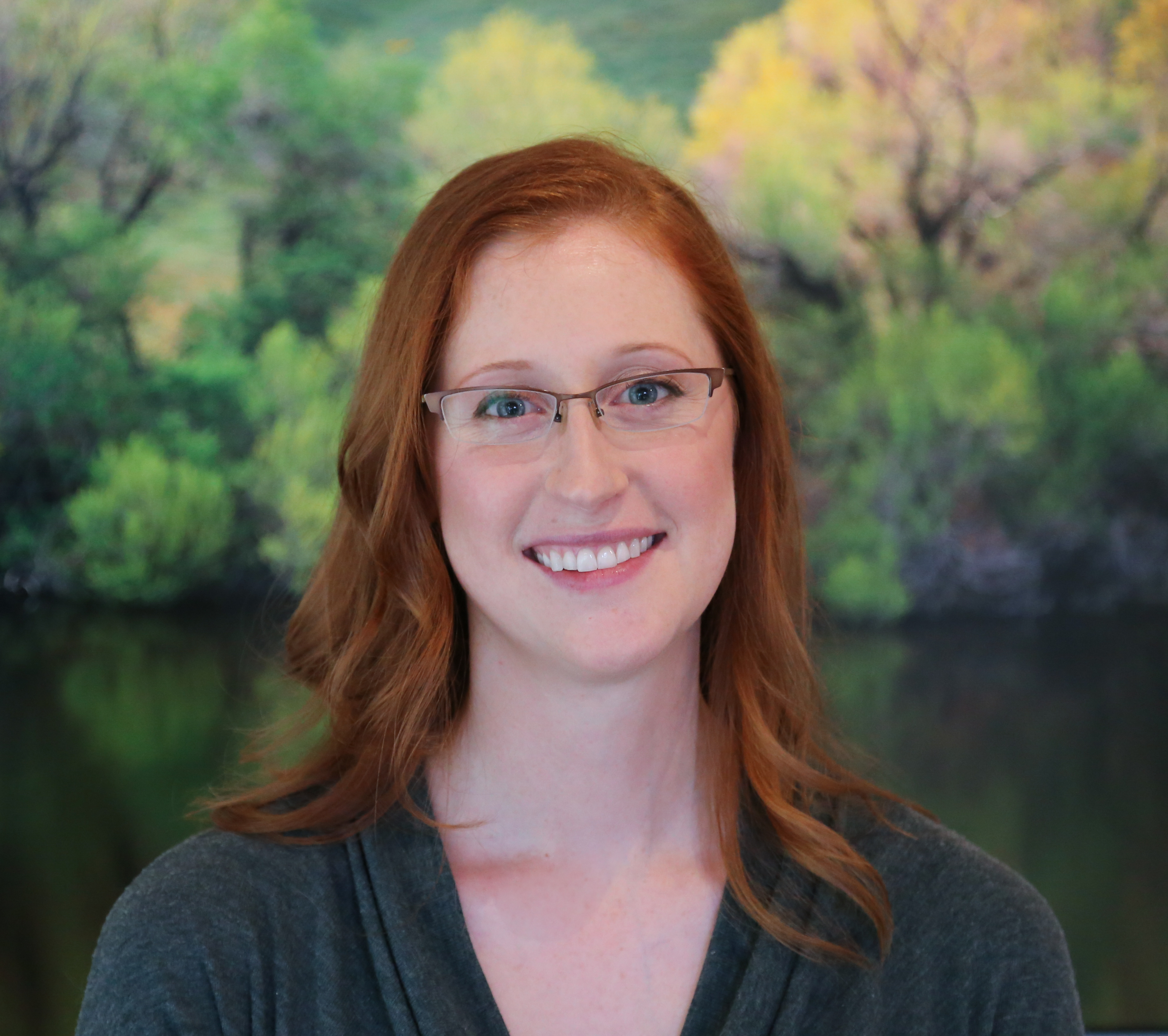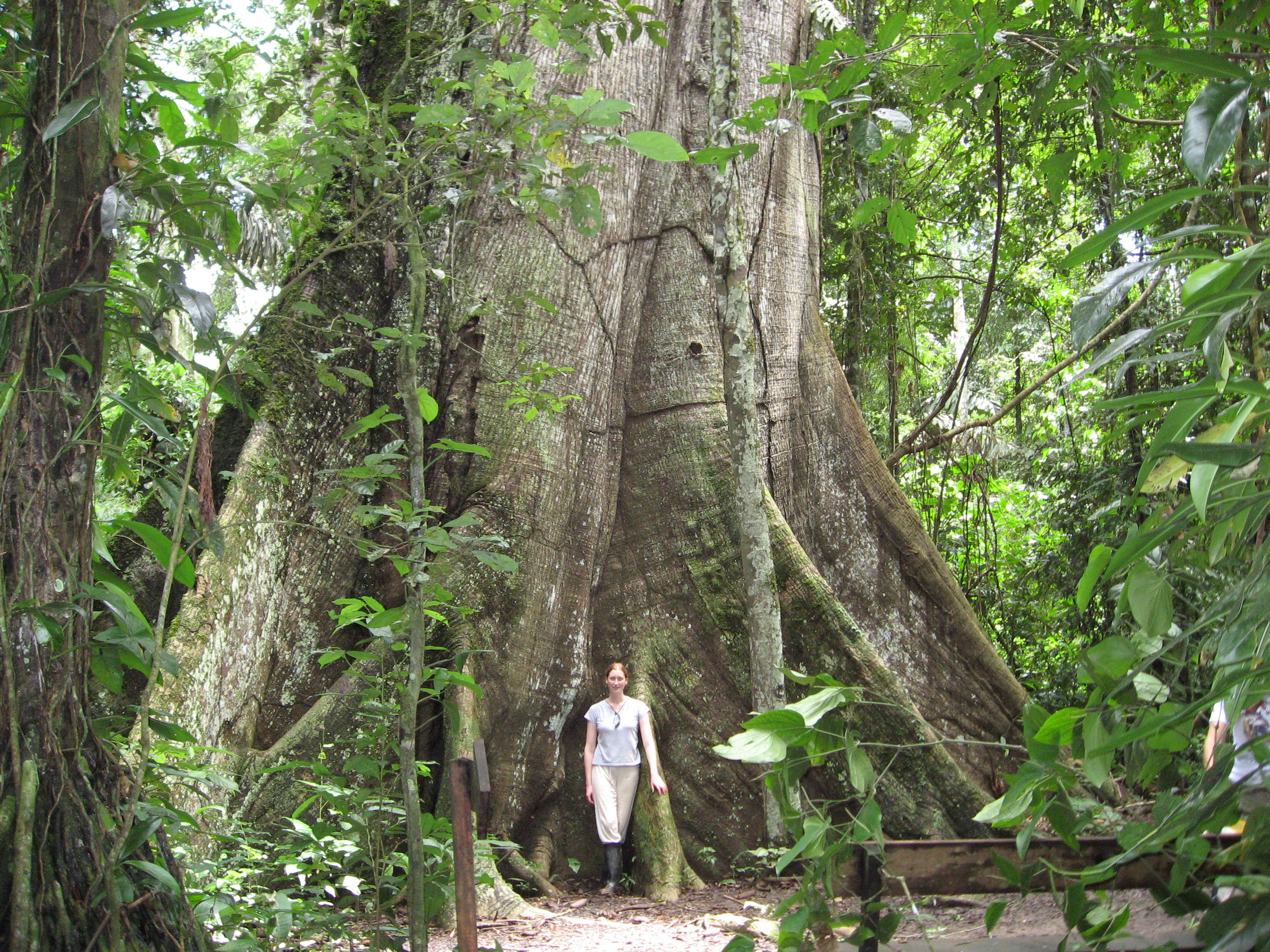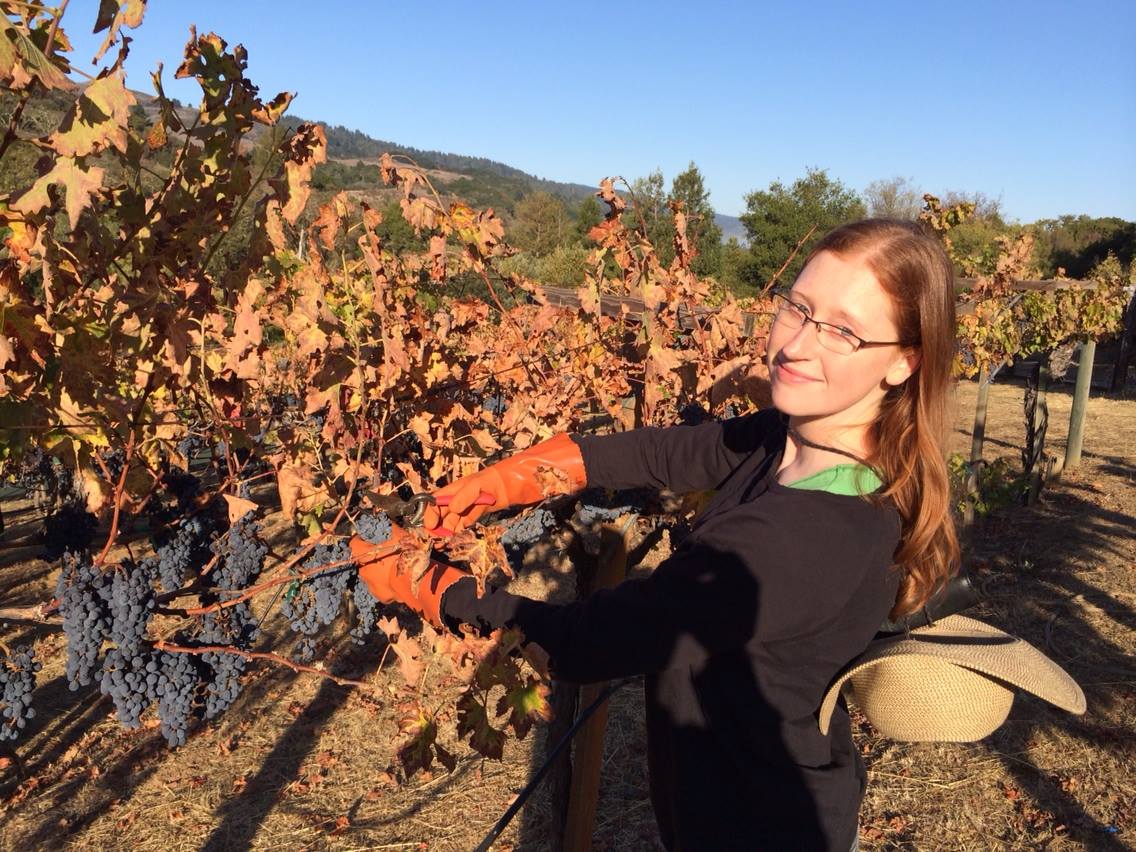In our first graduate student edition of our Student Spotlight series, Laura Driscoll tells us about her dissertation research, the organic farming report that she co-authored, and how studying anthropology sparked her interest in ecology.

Laura Driscoll
PhD candidate, Environmental Science, Policy, and Management
You are in the process of completing your dissertation. What’s the focus of your doctoral research?
My doctoral research looks at how food safety measures on vegetable farms impact environmental sustainability goals. I’m comparing the landscape of regulatory tools and private food safety standards that exist in the United States and United Kingdom, to see which tools create the best outcomes for both food safety and the environment. Regulatory approaches are very different between the two areas, while private standards are fairly similar. I’m finding that outcomes for food safety and environment are best with a blend of public and private governance, and food safety rules seem to be less in conflict with environmental goals under EU rules than they are here in the United States. Working with professor Kate O’Neill, I’m exploring all this in my dissertation to get into the details of why it works differently in each location, and what lessons we can learn for better management of both food safety and the environment.
How did you become interested in this field?
Prior to beginning graduate school at Berkeley, I studied anthropology at Stanford. For my master’s thesis, I examined how tourism was impacting community cohesion and resource use in indigenous communities along the Tambopata river in southeastern Peru, potentially impacting nearby national parks. After completing my masters, I began working for the Center for Responsible Travel, a non-profit policy-based research organization promoting sustainable travel that benefits local communities and protects the environment. In partnership with governments and other NGOs, we conducted studies comparing stay-over tourism to cruise tourism in Mexico and Belize, and comparing ecotourism to conventional tourism in Costa Rica. The backbone of all this work was interviews with tourism employees and household surveys in the nearby communities, where I was using my anthropological training to understand the social and economic impacts of different styles of tourism.
Many of the questions that we asked during interviews ran up against agricultural issues, like the tense relationship between environmental conservation messages and the necessary income communities made from export agriculture in palm oil or bananas. There was also hunger in some of these communities, even though many of the people not working in tourism were farmers, and I saw that much of what they grew was exported. I became very interested in questions around food and agriculture through doing this work, and how agriculture is tied into environmental goals and social equity questions. I started exploring agriculture through a blended social science and environmental lens, and that’s what led me to become a graduate student at Berkeley.

Laura beside a kapok tree in Tambopata National Reserve in Madre de Dios, Peru.
You co-authored a Berkeley Food Institute (BFI) report, Growing Organic, State by State: A Review of State-Level Support for Organic Agriculture. The report highlights the opportunities and challenges facing state departments of agriculture as they support a growing number of organic farmers. What led to your interest in organic farming research and how did you become involved in this report?
Working with farms of different sizes and types in my doctoral work got me interested in the unique challenges and benefits of organic farming. As the market for organic products continues to grow, it will be important to increase information and resources for supporting organic farmers. Environmental protection and sustainability in agriculture is a wide topic area that includes many different elements, but organic agriculture is one important component and we need to promote organic at the policy level. BFI selected me as a Graduate Student Researcher to conduct this study, to see what support currently exists for organic farming at the state level and how it could be strengthened.
What was the interviewing and research process like as you were writing the report?
After choosing states that would create a representative sample accurately reflecting each region, I worked to communicate directly with the departments of agriculture in each state to learn about the portfolio of ways that they’re supporting organic farmers. We wanted to know: What services do they offer organic farmers, what are the biggest challenges that they’re facing, and what are some things that their state does really well in terms of supporting organic? It was fascinating to talk to department staff.
It wasn’t always easy to figure out who was the best person to talk to in each department, because organic isn’t managed the same way in all states. For instance, some state departments are organic certifiers, and others do not handle certification. Tracking down and speaking with the right people was the longest part of the process because resources are stretched thin in many of these departments.
What are some recommendations that states could potentially take away from this report?
Our research revealed that state departments of agriculture may offer very different services based on whether they offer certification in-house or whether they do not certify. Those that do certify must comply with specific rules, and they often offer fewer services as a result. It could be helpful to reorganize how services are offered, or to strengthen links to universities and nonprofits that can fill in those gaps.

Another important takeaway from the report might be: Know your state’s organic farmer population and know how you can best help them. Many of the personnel working in these states have a good understanding of what’s most useful in their state. For example, in the northeast, there’s an emphasis on local products like dairy or maple syrup and organic is one group within that, and in the midwest a lot of energy is spent on issues of pesticide drift on grain farms. Some states have really large organic farmer populations so issues are around managing a high volume of service needs, and others have fewer organic farmers so their biggest work is around spreading information and growing that producer base. Different responses are needed for different farmer populations, in accordance with the resources each department has and how organic fits into their overall agricultural plan as a state. The states that were offering the best support for organic farmers were those that had a strong understanding of their farmers’ needs, and robust links to groups outside the department that could provide additional resources for farmers.
Of these recommendations and these conclusions, where do you see the most potential or the most political will?
This is going to be different for each state, and it remains to be seen what the response will be. It will be interesting to see what develops across the country on the heels of this work and other work that is being done to promote organic farming. One part of the report that is really promising is knowing which states are doing really well despite having few resources to put toward organic support. There are lessons there that could help other states, and opportunities for additional growth. Helping to connect farmers to resources outside the department is something that any state can work toward regardless of resources, so that is really promising.
There are ways that departments can facilitate or make space for work being done by university extension personnel and nonprofits, so strengthening the bonds between these state agencies and other players in the field is really important to best leverage limited resources. It was interesting seeing how organic regulations function on a national level and how they then trickle down into decisions and practices at the state level, different from state to state. How those different levels of regulation are articulated was really interesting to think about, since that is a topic I’m also dealing with from a different angle in my dissertation.
Do you know of a student or group in Rausser College involved in noteworthy research, community outreach, or extracurricular activities? Let us know by submitting a suggestion with this nomination form.
